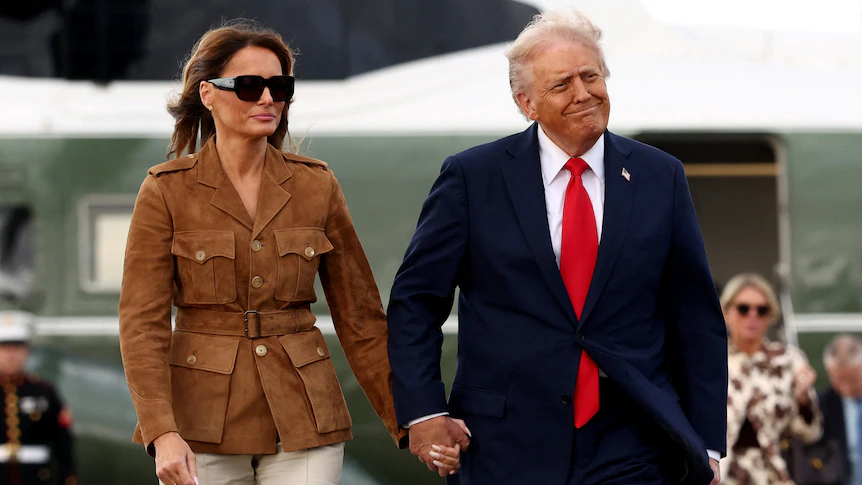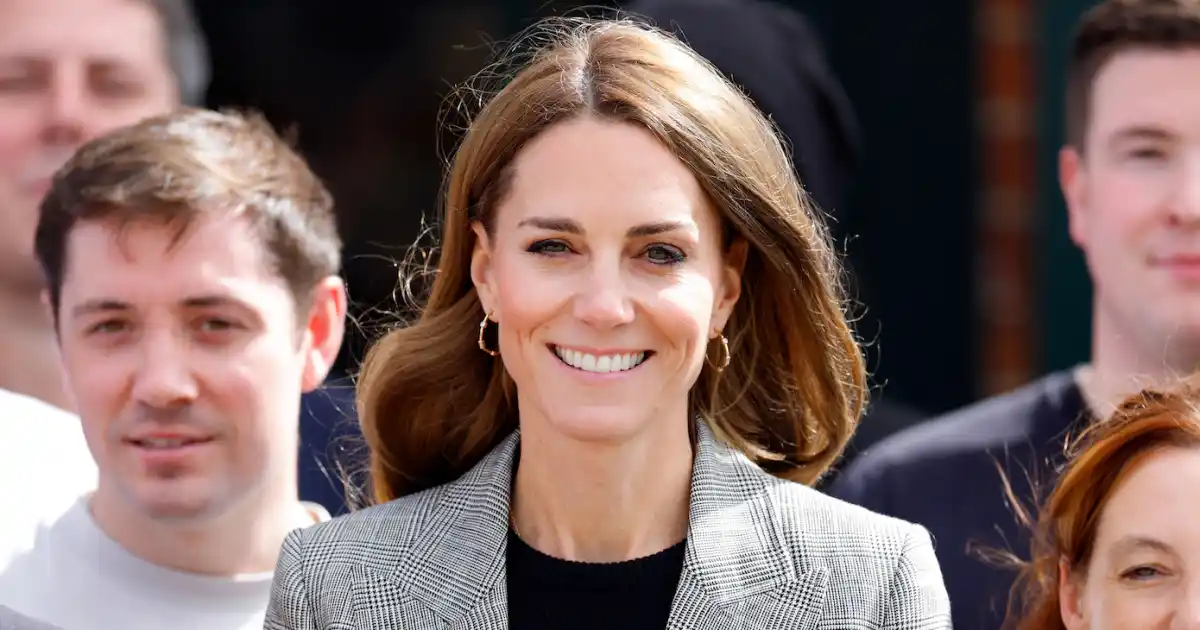By Laura Tingle
Copyright abc

One of the first acts of the United Nations in 1947 was to adopt a plan to create independent Jewish and Arab states in the British protectorate of Palestine.
Israel, as a result, is very much a child of the UN and of all the hopes and ambitions it carried of a forum that could avoid future conflict in the years after World War II.
As world leaders arrive in New York this weekend for the UN General Assembly, the failures of that plan are just one of the issues facing the global body, and multilateralism more broadly.
The UN has been powerless to do anything about the escalating horrors being seen to be inflicted on the Palestinian people in Gaza, or Israel’s further incursions into the West Bank — both developments which carve out more land for Israel on the territory initially nominated for the Palestinians.
UN will have to ‘shrink’ ambitions
For years now, Israel has bitterly complained that the UN’s work has been weighted against it, initially as a result of the increasing power of the Arab voting bloc.
By May last year, the Israeli ambassador to the UN was physically shredding a copy of the UN charter at the podium in the General Assembly and calling the UN a “terror organisation”.
An Israeli air strike destroyed the headquarters of the United Nations Relief and Works Agency for Palestine Refugees (UNRWA) in Gaza, as well as other UNRWA sites, and Israel accuses the aid organisation of working hand-in-hand with Hamas.
“The UN has faced many attacks in the past, and the UN struggled in places like Bosnia in the 1990s when you had peacekeepers being taken hostage,” says Richard Gowan, the UN director of the International Crisis Group.
“I think the situation in Gaza, though, is of particular concern to most UN members, both because of the humanitarian situation, but also because this is a conflict which the UN has been trying to resolve for almost 80 years.
“And now the UN sees that Israel is basically pushing the world organisation out of the picture. For a lot of countries, that is really an almost existential challenge to what the United Nations stands for.”
The UN has seemed equally unable to find a role for itself in finding a resolution to Russia’s war in Ukraine — which now threatens to broaden into conflict across Russia’s eastern borders as Vladimir Putin tests the resolve of the West, and Western Europe belatedly engages in its biggest arms build-up since the Second World War.
The UN has been struggling too in a vicious war being conducted in Sudan, that has killed millions but attracted much less global attention.
The UN’s role in areas beyond diplomacy — humanitarian aid and refugees, cultural heritage, health, and climate — are all under assault from savage budget cuts by the United States and a general sense that its mandate has just become too big.
“I think what we’ve got used to over the last 35 years since the end of the Cold War is a much more expansive, a much more ambitious UN,” says Gowan.
“I think we’re entering a period where the UN is going to have to shrink its ambitions and will be less present on the ground. Now, there will be suffering. The UN is going to be feeding less people, sheltering fewer people, vaccinating fewer people, and that is going to make some very unhappy places even worse off.
“But that does seem to be the direction of travel, and it’s not just the Trump administration.
“We’ve seen peacekeeping shrinking for some years. We’ve seen the Security Council getting more and more divided in recent years. I think we have to be realistic that we can’t go back to the very ambitious UN of the 1990s.”
Focus on climate
One of those areas where the UN has claimed a broader mandate is climate policy and next week will also be ‘Climate Week’ at the organisation.
The UN’s role as a facilitator of global climate action is now also but a pale shadow of its former ambition. The outcomes of the global summits in Rio de Janeiro, Copenhagen and Paris — which became such lightning rods for global debate and action on climate — have faded to puffs of smoke.
Ten years ago, France led the push for the Paris Agreement — a legally binding international treaty to limit global warming to well below 2 degrees Celsius, ideally to 1.5 degrees Celsius, compared to pre-industrial levels
Now French President Emmanuel Macron, who has made much of France’s climate leadership during his time in office, is reported to have been at the centre of a push to stall a vote on the European Union’s next climate goals, for 2035 and 2040, meaning the EU will miss the deadline for submitting its target before the UN Climate Change Conference in Brazil in November.
In both that stalling, and Australia’s contrasting announcement this week of its new emissions reduction target for 2035, we can see an example of the sort of role that the UN, its meetings and its institutions, can still play in the world.
It provides focus and deadlines through which international pressure can be applied that might not otherwise exist on global issues and major conflicts.
Israel in ‘isolation’
With world leaders realising they cannot rely on the US for leadership on issues like Gaza and Ukraine, this week’s General Assembly becomes a rare platform to try to up the international ante on Israel.
Israeli Prime Minister Benjamin Netanyahu almost seemed to speak with pride this week about how his country was now in a “type of isolation”.
“We’ll need to develop weapons industries here,” he told an economic conference.
“We’re going to be Athens and super Sparta,” the Israeli newspaper Haaretz reported him as saying.
Life, he said, “is more important than the law”.
He blamed Muslim minorities in Western Europe for the increasing moves by European countries to stop selling weapons to Israel.
Opposition to Netanyahu within Israel continues to grow. The chief of staff of the Israel Defence Forces, Eyal Zamir, has made clear his opposition to the move in Gaza City and was reported to have had fiery exchanges with the Israeli cabinet last weekend for failing to negotiate a deal to release Israeli hostages.
Opposition Leader Yair Lapid said Netanyahu’s remark on isolation was “crazy”.
“Isolation isn’t fate, it’s the product of the wrong and failing policies of Netanyahu and his government,” he said.
“They are making Israel a third-world country and aren’t even trying to change the situation.”
Meanwhile, ‘Operation Gideon’s Chariots II’ saw the Israeli Defence Force push into Gaza City, behind a massive aerial department that continued to kill hundreds of civilians and seeks to displace a million people in the name of gains, which even Israel seems to acknowledge are highly questionable.
Israel army radio reported on Wednesday night that Hamas terrorists still in Gaza were “not coming into direct contact” with the IDF and also that “most of the terrorists in Hamas’ Gaza City Brigade — about two-thirds — fled the city south and also evacuated to humanitarian areas in the southern Gaza Strip”.
This was would seem to sit at odds with the questionable rationale of the operation: separating the civilians from Hamas by forcibly evacuating them.
International pressure mounts
The global pressure on Israel, which many have likened in the last week to Apartheid-era South Africa, is slowly mounting.
The EU has this week announced new tariff measures on imports of goods from Israel. Spain’s prime minister has threatened to pull out of international sports events and even Eurovision, if Israel is taking part.
The Arab world is sounding angrier, even if a summit called after the Israeli strike on Hamas in Doha didn’t result in any formal trade or other sanctions.
If the 2025 General Assembly tells us anything, or achieves anything, its message will most significantly be one about whether the world is completely at the mercy of Donald Trump’s erratic but savage policy decisions, or if we see any material signs of the push away from waiting for US leadership to accelerate.
The Saudi-French-led push to escalate pressure on Israel and to find a plan that might work for a ceasefire will be at the centre of a meeting on Monday to discuss the two state solution, a ceremony at which countries including Australia will announce they are recognising Palestine.
The US president is due to speak on Tuesday morning, New York time.
Given the cuts to the UN Trump has already made, both in terms of budget and lack of political support, and his failure to deliver an end to hostilities in Ukraine or Russia, diplomats are more focused on what he has to say in his speech — and where he goes next — than much of the formal agenda of the meeting.
Despite the change Trump is forcing on the UN, analysts like Richard Gowan say the body still has a role to play.
“We should remember that there are still a lot of small countries, medium sized countries, that don’t have other platforms on which they can speak out diplomatically,” he says.
“Most countries don’t get invited to the G20, they don’t get invited to the BRICS or the G7 and for those countries, the UN is still a space that really matters, because it’s the one place that they can coordinate and they can make joint demands on things like development that sometimes get ignored, but sometimes do actually also break through.”
That, of course, will depend on whether Trump leaves any oxygen in the room.
Laura Tingle is the ABC’s Global Affairs Editor.



